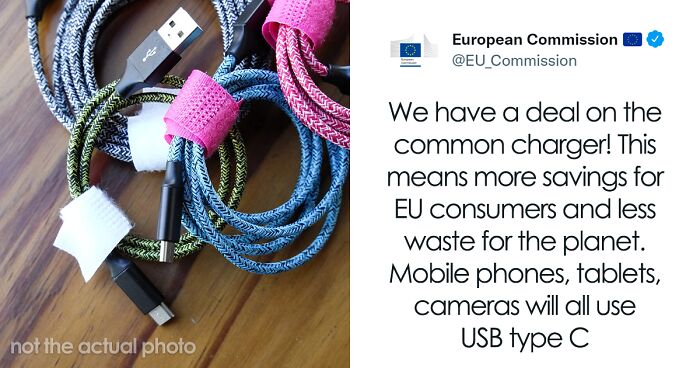
USB-C To Become Mandatory Charger In EU By 2024, With Rules Applying To All Companies, Including Apple
One cable, two cables, three cables, four… I won’t need most of you anymore! A new deal has been agreed on that will see the USB-C become the mandatory charger in the European Union (EU) by 2024. Some are ecstatic to hear the news, others are concerned or skeptical whether this will make a difference.
So let’s dive into the sea of cables and learn what this is all about. But before we do, dear pandarandas, please feel free to leave your thoughts on the topic in the comments below, upvote the story itself, and mayhaps follow the author for more! Aight, let’s zap into it! Get it? Zap? Because it’s electric… oh, whatever.
More info: European Parliament
European Parliament and Council negotiators have agreed on a deal, aimed at making the USB-C the common charger in the EU by 2024
Image credits: EU_Commission
I’m sure a lot of us have got a keepsake box full of the most random cables for that one particular thing, which you’ve probably already thrown away. But you can’t bring yourself to get rid of any of them just in case you need them.
Whelp, it’s finally time for them to get a bit more unified and it starts today, as the European Parliament have agreed on a deal, making the USB-C the primary charger in the EU by 2024. It’s something many people have been looking forward to, especially iPhone users.
Their main aim – reduce customer hassle and curb electronic waste. The change will impact all small electronic devices
Image credits: HS You (not the actual photo)
A statement on the new initiative was shared by the European Parliament, stating that the main aim is to reduce hassle for consumers and curb electronic waste.
The change will impact all small electronic devices, such as smartphone chargers, tablets, e-books, wireless headsets and laptops. They believe that buyers will be able to choose whether they want to purchase new devices with or without the charger itself.
From earbuds to laptops, people will be able to use a single charger for all their portable electronics
Image credits: EP_SingleMarket
EU Parliament’s rapporteur Alex Agius Saliba said: “Today we have made the common charger a reality in Europe! European consumers were frustrated long with multiple chargers piling up with every new device. Now they will be able to use a single charger for all their portable electronics.”
“We are proud that laptops, e-readers, earbuds, keyboards, computer mice, and portable navigation devices are also included in addition to smartphones, tablets, digital cameras, headphones and headsets, handheld video game consoles and portable speakers.”
“We have also added provisions on wireless charging being the next evolution in the charging technology and improved information and labeling for consumers.” The switch to USB-C should bring faster charging speeds throughout, which will also be dependent on the wattage of the charging brick itself.
People will be able to choose whether they want to purchase new devices with or without the charger itself
Image credits: osde8info (not the actual photo)
This will potentially be a large switch for all Apple users, considering the wide range of cables being used throughout the devices. The new iPad and MacBooks all use USB-C, however, the iPhone still uses Lightning, which can pose some issues when it comes to transfer speeds of files between devices. It’s also the only main brand smartphone without this type of connection.
USB-C ports were introduced in Apple’s 12in MacBook model in 2015 and in the iPad Pro in late 2018, while other iPads have come with the port since 2020. It is unclear why the iPhone has not followed the same pattern, yet analysts at Make Use Of believe that it has to do with a loss of revenue from every Lightning cable and accessory that works with the iPhone.
Apple users might be the most affected, considering the wide range of cables being used throughout the devices, yet no companies are to be excluded from the change
Image credits: Egle Radziute (not the actual photo)
Thierry Breton, commissioner for the EU’s internal market, confirmed during a press conference that no companies will be excluded from the change.
According to The Verge, he stated that “the rule applies to all and sundry. It’s not adopted against anybody. We’re working for the consumers, not the companies, and we have to give these companies rules; rules that are clear in order to enter the internal market.”
Parliament and Council will have to formally approve the agreement before it is published in the EU Official Journal
Image credits: Alan Bruce (not the actual photo)
So what’s to come next? Well, according to the EU Parliament’s statement, “after the summer recess, Parliament and Council will have to formally approve the agreement before it is published in the EU Official Journal. ”
“It will enter into force 20 days after publication and its provisions will start to apply after 24 months. The new rules would not apply to products placed on the market before the date of application.” If all goes to plan, it is expected that this change will take place in autumn 2024, becoming a formality.
If all goes well, the change is expected to take effect by autumn 2024, but we will have to wait and see
Image credits: HS You (not the actual photo)
There are debates as to whether this will be the best move going forwards, considering the potential tons of waste this will generate with people getting rid of the cables they already have, as well as the metaphorical stop sign to further innovation.
And yet, it is difficult not to see the positive sides, too. The less varieties of cable needed, the less people need to own and, therefore, less resources are to be used. Especially if the cables can be recycled or disassembled for parts rather than outright dumped, this could turn out to be very beneficial.
Let us know your thoughts on this in the comments and I wish you all a fantastic day! Until we meet again!
A debate has ensued after the announcement, some people believing that this will generate more waste and stunt innovation
Image credits: sscywong
Image credits: i_am_izian
Image credits: aahonen
Image credits: RodrigoGLozano
Whilst others are seeing the positives, excited over the long-awaited decision. Let us know what you think of this in the comments!
Image credits: ickoonite
Image credits: RohmCarlos
Image credits: PeterSalessesp
Image credits: Kristo_th
Image credits: Sil3nce96
Image credits: OliGneisti
Image credits: PmulmJ
Image credits: ShamrockSoup
Image credits: south_birder
11Kviews
Share on FacebookWe have a basket with three types of charging cables on the counter. Recently we found charging cables with multiple heads. Our cars need to have a full set too. Big question --- do any of them spark joy?
I remember the early days of mobiles (when they became affordable in the late 90s) and EVERY SINGLE PHONE had a different charger. A complete nightmare. Now AFAIK Apple is the only outlier. In a few years we'll all just have one cable for the house, maybe a spare. So much less waste and expense..
Even then, some apple devices are using usb c already.
Load More Replies...Alas the UK with its brexiteer-led race to the bottom has said it isn't going to follow suit, as that's what the EU is doing.
If Apple has to do this with one of its major markets then it would make sense if they moved all markets to this. Better than producing two different chargers for two different markets..
Load More Replies...We have a basket with three types of charging cables on the counter. Recently we found charging cables with multiple heads. Our cars need to have a full set too. Big question --- do any of them spark joy?
I remember the early days of mobiles (when they became affordable in the late 90s) and EVERY SINGLE PHONE had a different charger. A complete nightmare. Now AFAIK Apple is the only outlier. In a few years we'll all just have one cable for the house, maybe a spare. So much less waste and expense..
Even then, some apple devices are using usb c already.
Load More Replies...Alas the UK with its brexiteer-led race to the bottom has said it isn't going to follow suit, as that's what the EU is doing.
If Apple has to do this with one of its major markets then it would make sense if they moved all markets to this. Better than producing two different chargers for two different markets..
Load More Replies...
 Dark Mode
Dark Mode 

 No fees, cancel anytime
No fees, cancel anytime 


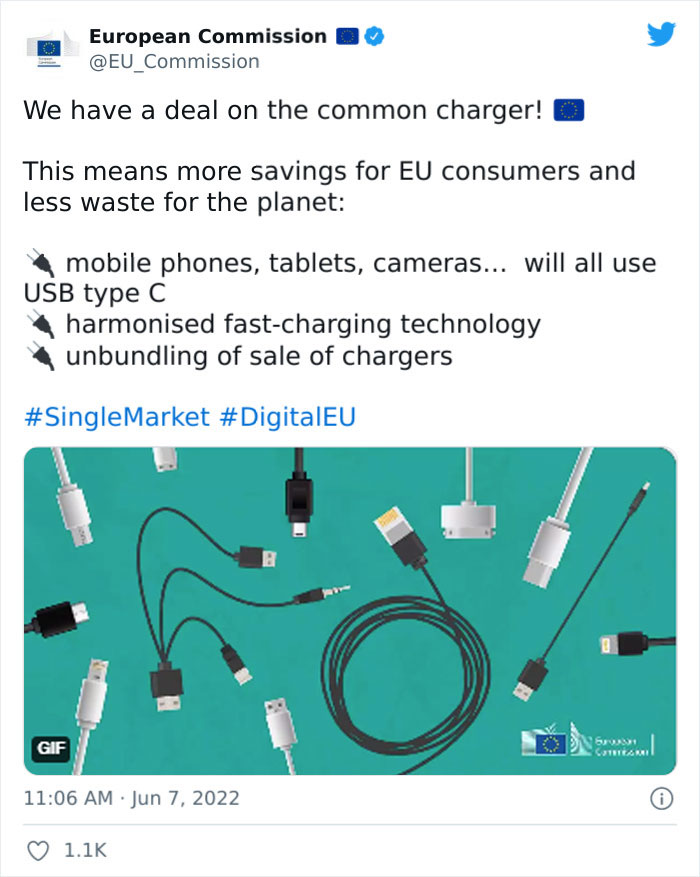
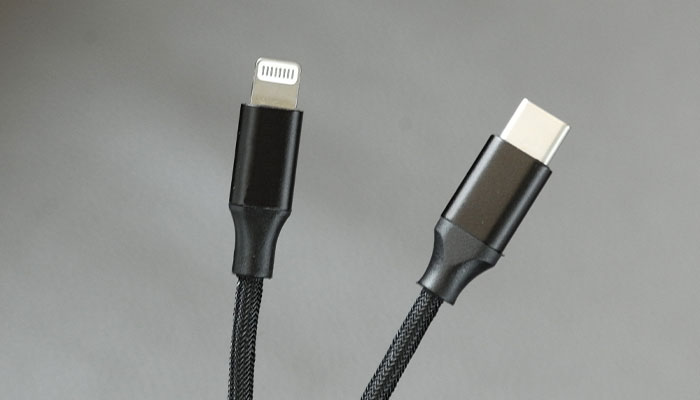
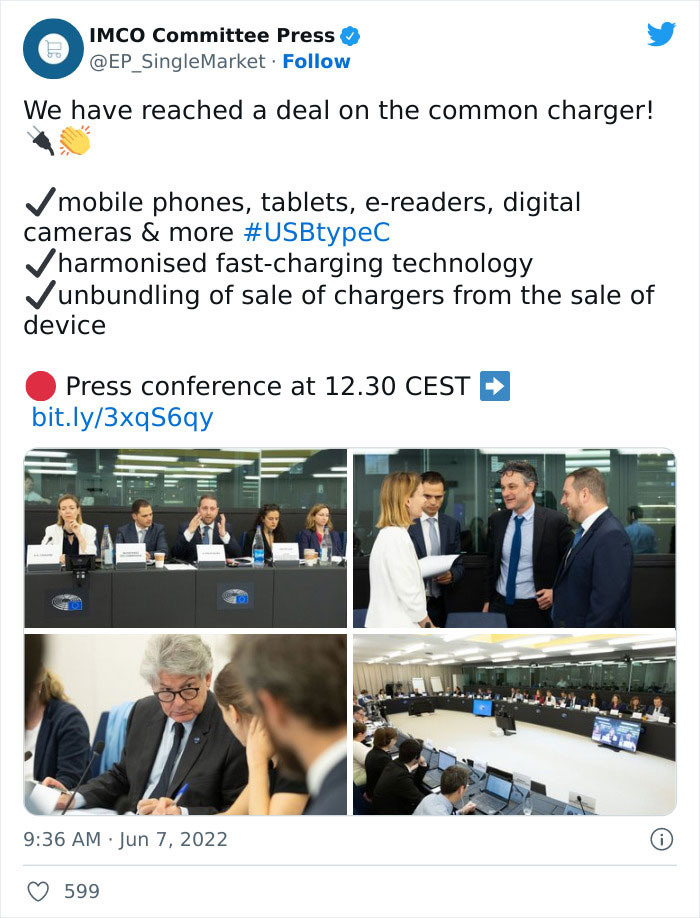
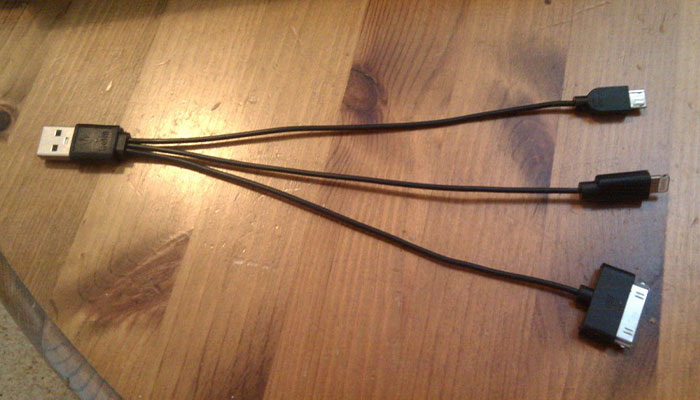
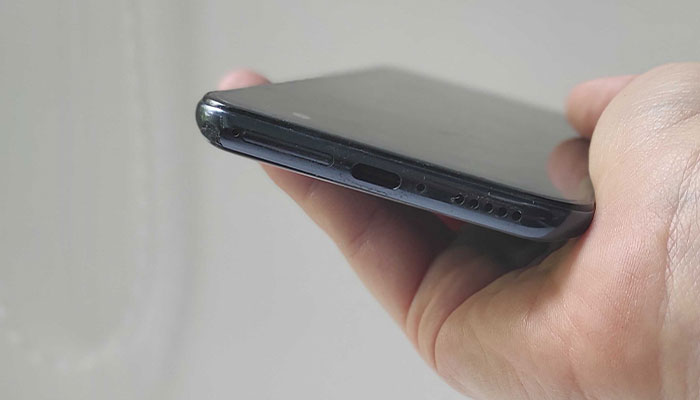
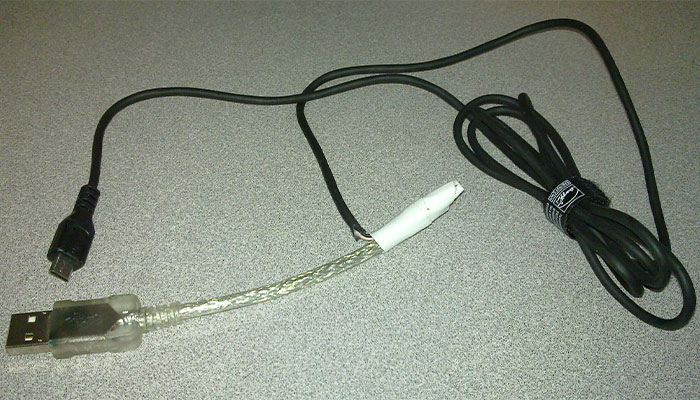
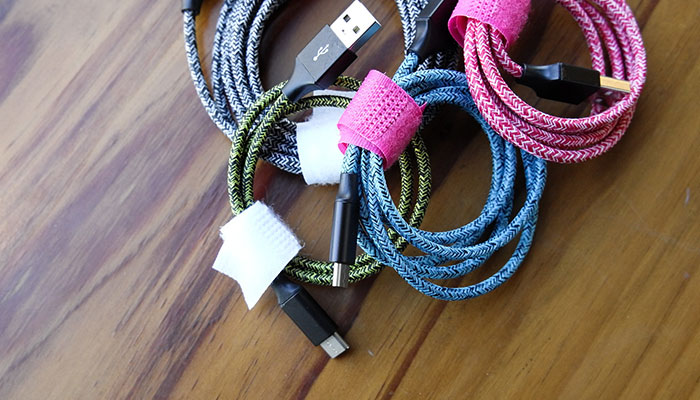
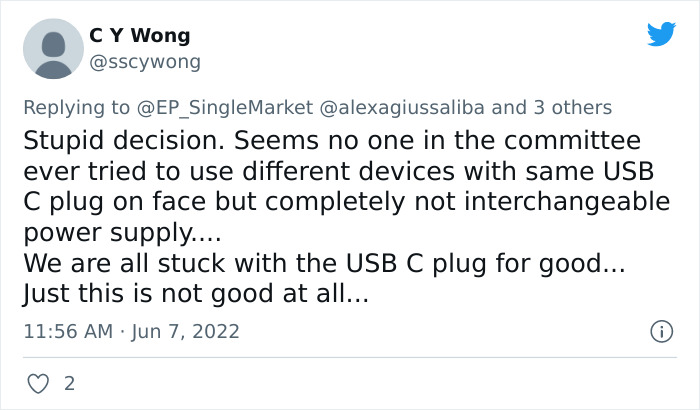
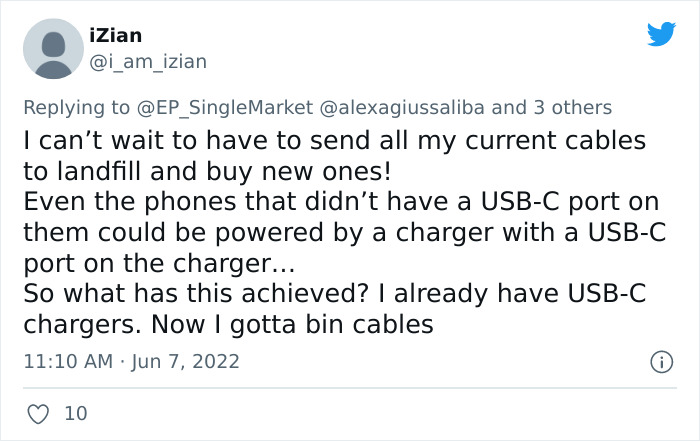
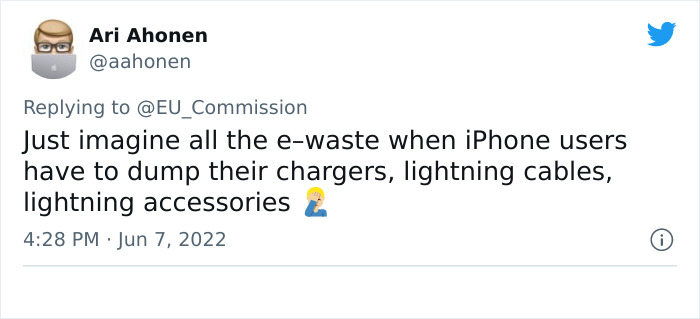
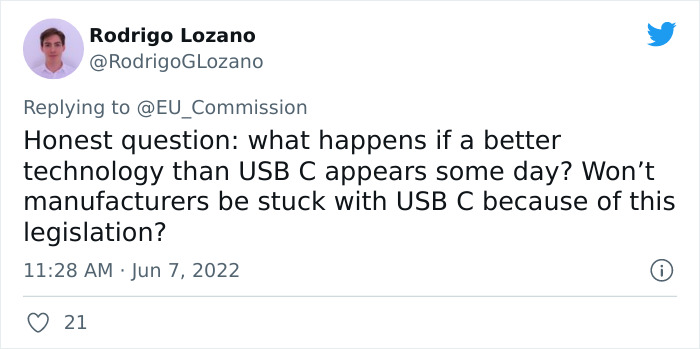
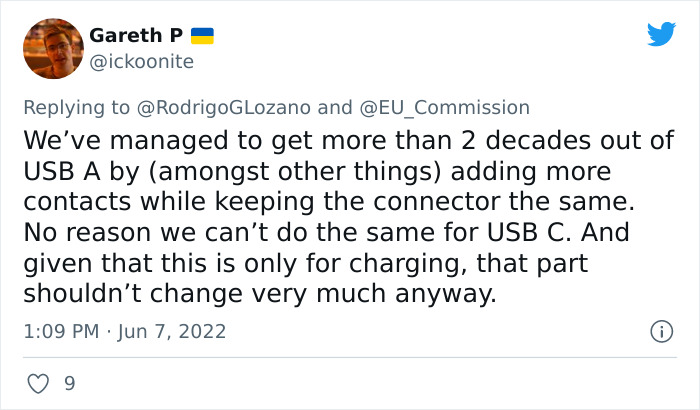
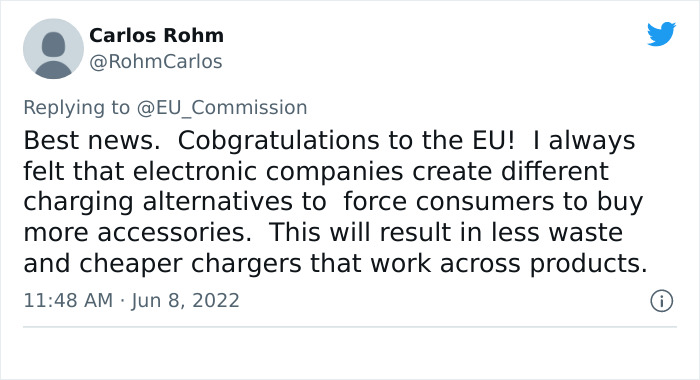
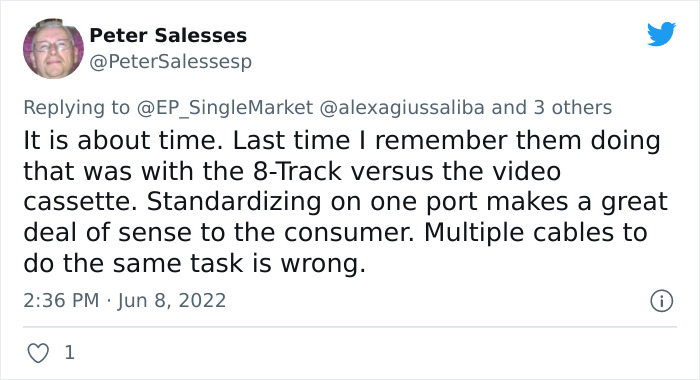
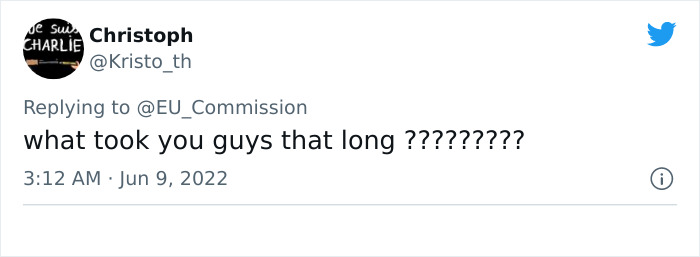
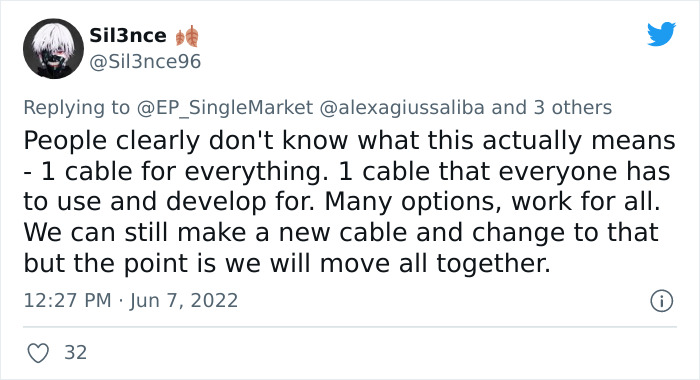
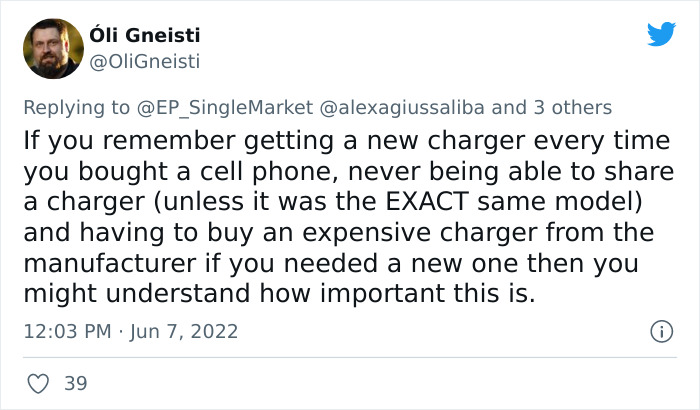
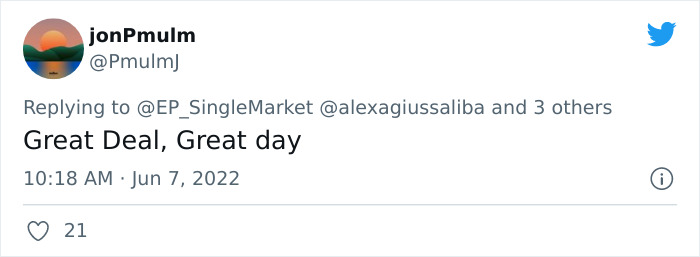
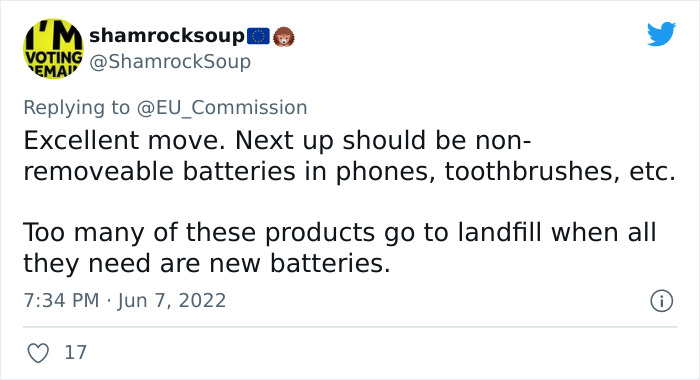
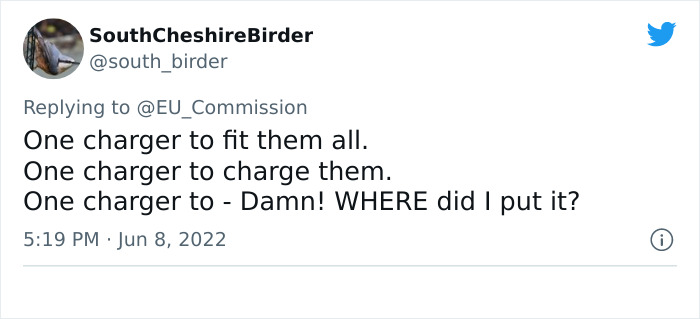






























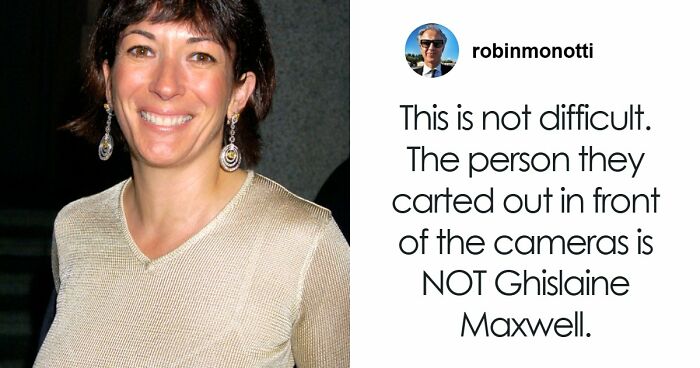












102
10